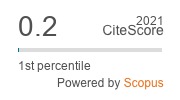Hybrid gls-ridge Modelling in the Presence of Multicollinearity and Autocorrelation Phenomena.
DOI:
https://doi.org/10.17762/msea.v71i4.1238Abstract
Multicollinearity and autocorrelation are two common issues in multiple regression analysis that have a negative impact on estimation and prediction. The presence of multicollinearity causes estimation instability and model misspecification, whereas the presence of autocorrelation causes underestimation of the estimator's variance and inefficient prediction. The Generalised Least Squares (GLS) regression model was developed to solve the problem of autocorrelation, whereas the ridge regression model was developed to solve the problem of multicollinearity. However, according to the literature review, no method has solved these two problems in a model at the same time. As a result, this study employs a hybrid Generalized Least Squares-Ridge (GLS-R) regression model to solve problems caused by multicollinearity and autocorrelation in a single model. Data on GDP, inflation rate, exchange rate, and money supply were obtained from the Central Bank of Nigeria's (CBN) Statistical Bulletin and used for analysis from 1981 to 2020. The regression coefficients for each estimator were estimated, and the model with the lowest Mean Square Error (MSE) and Akaike Information Criteria was chosen (AIC). The AIC of GLS-R regression techniques was lower than the MSE and AIC of Least Squares, Ridge regression, and Lasso regression techniques. When there is a problem of multicollinearity and autocorrelation simultaneously, the GLS-R regression techniques outperform the Least Squares, Ridge, and Lasso regression techniques, implying that the GLS-R regression model is preferred over the Least Squares, Ridge, and Lasso regression models.




